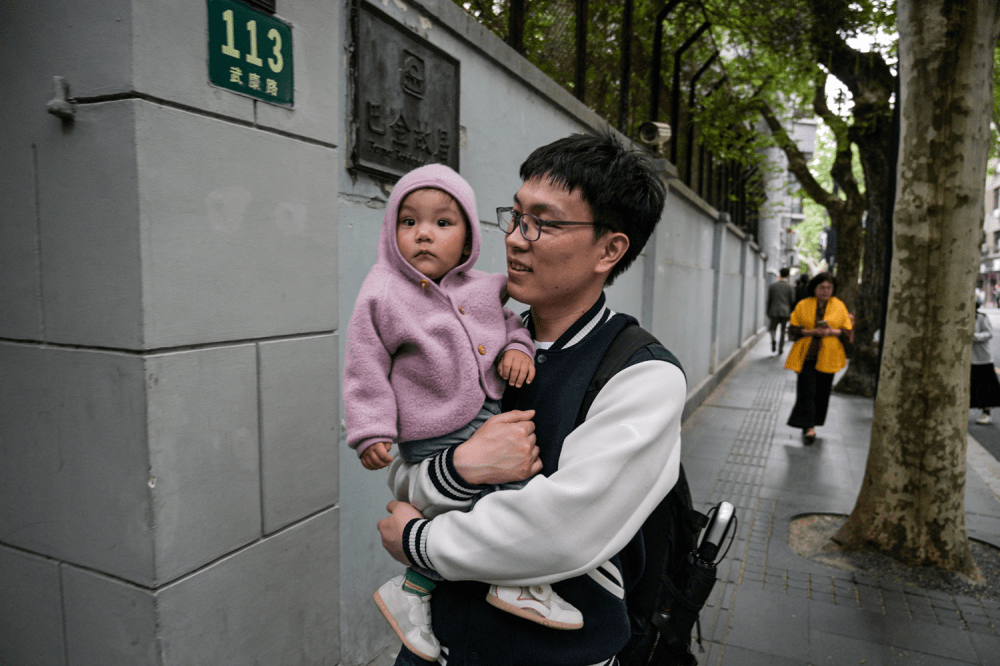On Sept. 8, China began accepting applications for its nationwide child care subsidy, retroactive to Jan. 1, a flagship policy in its bid to reverse a record-low birth rate. Earlier, in August, the State Council announced that the government would pay for children’s last year of preschool. In recent years, the government has offered tax breaks, housing incentives, and fertility treatment coverage to encourage family formation.
But these measures are unlikely to work. China’s birth rate has fallen from 2.5 births per woman in 1990 to just 1 birth per woman in 2023. The country’s declining birth rate is not only an economic problem but a cultural one. For many young people, the real barrier is not the cost of raising children. Rather, it is the conviction that parenthood no longer makes sense in a future that feels uncertain and unworthy of investment. Unless policies address this deeper malaise, subsidies and bonuses will do little to stem the decline.
This mismatch matters. A shrinking population threatens China’s domestic growth, the resilience of global supply chains, and even geopolitical stability. Fertility decisions are, at their core, decisions about the future. When a generation turns away from parenthood, it signals not just hesitation but a broader withdrawal from hope itself.
While older generations in China often saw hard work translate into upward mobility, research shows that mobility has declined among generations born after the 1970s. Today, many young Chinese see it as a treadmill going nowhere—an exhausting path that offers neither stability nor meaning. In that context, marriage and parenthood can feel less like milestones than burdens. This disillusionment has fueled cultural currents such as the “lying flat” movement and viral slogans such as “no marriage, no kids, stay safe,” capturing a broader retreat from certain ambitions, family life, and social expectations.
Economic pressures, such as soaring housing costs, precarious jobs, and the punishing “996” work culture, are part of the story. But they are intertwined with something deeper: a loss of faith in the future. Young people increasingly doubt whether the system rewards effort or offers anything worth building toward. Parenthood, in this context, is less a joy to anticipate than a burden to avoid.
Last summer, when I gave a series of talks in China, nearly every university and organization I visited asked me to speak on the determinants of low fertility and the evidence on which policies might work. I drew on my own research on the relationship between flexible work arrangements and fertility to show what lessons might apply. But what struck me most was what happened afterward. At several talks, young audience members came up to me not to ask about subsidies or child care but to ask, quite sincerely, why I personally had decided to have children. To them, in a future they see as bleak, it made little sense. Why invest years in raising a child when you could instead spend your time pursuing your own interests? Their questions revealed just how profoundly many young Chinese view parenthood itself as irrational, not merely unaffordable.
The numbers reflect this retreat: Marriage registrations have been falling steadily since 2013, reaching a record low in 2024. Fertility intentions (i.e., how many children people say they want) have also fallen, even among the well-off. Unlike in countries such as France or Italy, where young people often aspire to have two or more children but struggle with practical constraints, many young Chinese have stopped aspiring altogether. For some, it is not about postponement—it is about opting out.
As Jia Yu, a sociologist at Peking University, explained in a 2024 interview with the widely read WeChat account Serious Demography Gossip: “People don’t just consider their current situation—they ask what kind of world their children will grow up in. If I’m already overwhelmed by pressure, why would I want to bring a child into the same environment?” Generalized anxiety about the future reduces fertility intentions even among those with stable incomes and housing.
The government’s response has been a wave of pronatalist measures: baby bonuses, extended maternity leave, and campaigns urging women to “return to the family.” Yet these policies often reinforce traditional gender roles, placing the caregiving burden on women while offering little support for men or for shared responsibility. Men, meanwhile, shoulder mounting financial pressure with minimal institutional backing. Instead of addressing the cultural and emotional roots of disaffection, such measures risk deepening it, making parenthood feel even less viable.
Behind the demographic decline are two groups: those who want children but cannot afford them and those who no longer see the point—a group that surveys suggest already includes more than a quarter of China’s university students. For the first, current subsidies fall far short of what’s needed to offset high housing costs, long working hours, and limited child care. For the second, no subsidy is likely to matter. Their disinterest in having children reflects disillusionment with adulthood itself—an exhaustion with obligations that no longer feel meaningful.
Reversing the declining fertility will require more than financial incentives. It will demand rebuilding trust in institutions, expanding life opportunities, and restoring a sense of stability and purpose for the next generation. Without that, no subsidy will persuade the disillusioned to bring children into a world they do not believe in.
The stakes are not confined to China. With the world’s second-largest population sliding into demographic decline, the consequences will reverberate globally, from labor markets to supply chains to international politics. When a society loses its faith in the future, the effects do not stop at its borders.
China’s challenge is therefore not just demographic but existential. The path to restoring fertility runs not through subsidies but through belief—through rebuilding a vision of the future that young people can see, trust, and embrace as their own.
The post China’s Plunging Birth Rate Is a Crisis of Belief appeared first on Foreign Policy.




